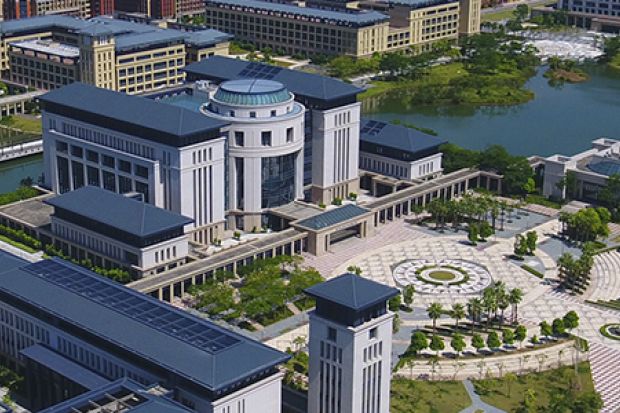This year marks the 20th anniversary of Macau’s handover to China. The “One Country, Two Systems” policy has been implemented in Macau since its return and the city has become a melting pot of Sino-Western culture.
The University of Macau has benefited from the city’s distinctive status in a number of ways. We enjoy a high level of academic freedom and autonomy while receiving unreserved support from the central government. And we have benefited from the city’s unique position on the west bank of the Pearl River by taking strides towards integrated industry collaborations.
Thanks to support from the government, we have established Asia’s largest residential college system by moving to a location 20-times larger than our previous campus. The Chinese government has also approved state key laboratories in microelectronics, Chinese medical sciences and the internet of things for smart cities, facilitating research development in related fields.
The Chinese government has set a number of objectives for the city: to serve as “one centre”, a world centre of tourism and leisure; “one platform”, a commercial and trade cooperation service platform between China and Portuguese-speaking countries; and “one base”, a base for exchange and cooperation where Chinese culture is the mainstream and diverse cultures coexist.
The Macau Special Administrative Region government has leveraged this opportunity as a way to build diverse industries through talent training, with a mission to “Let Macao thrive through education and building Macao with talent”.
And UM is also on board. We have supported the city’s efforts by offering programmes in integrated resort and tourism management to train local professionals for the hospitality and tourism sectors.
UM also cultivates Chinese-Portuguese bilingual professionals to support Macau’s role as the bridge between China and Portuguese-speaking countries. Our department of Portuguese is now the largest and strongest Portuguese-teaching department outside of Portugal and Brazil.
In 2018 we set up a Confucius Institute to promote Chinese language and culture to overseas countries to support the government’s goal to make the city “one base” – diverse but rooted in Chinese culture.
And in February this year, the Chinese government released its plan to develop the Greater Bay Area which has identified Macau, Hong Kong, Guangzhou and Shenzhen as the core cities for driving regional development.
As the only comprehensive university on the west bank of the Greater Bay Area, UM seized the opportunity and signed a number of collaborative agreements with industry and research institutes in the region. To support the development of the “Guangzhou-Shenzhen-Hong Kong-Macau” innovation and technology corridor, we have established a base in the special economic district of Hengqin to facilitate our collaboration in major areas such as microelectronics, Chinese medical sciences, smart city technology, medicine and advanced materials.
Becoming global is equally imperative for UM. We have established 220 collaboration agreements with institutions around the world where UM students can go on exchange. And we’ve launched joint degree programmes with leading universities such as Zhejiang University, Tsinghua University, Imperial College London and University of Toronto. We believe that the steps taken will help our students develop international perspectives and help them to contribute to the betterment of society.
After 38 years of development in this unique city, UM has entered a new era. But it will continue to improve and innovate in order to become an outstanding university that is rooted in Macau. We remain integrated in the Greater Bay Area with objectives geared towards improving China and making an impact in the world.
Song Yonghua is president of the University of Macau.
Song Yonghua will be speaking at the Times Higher Education Young Universities Summit held in partnership with the University of Surry and the University of Wollongong at the University of Surrey 26-28 June, 2019.
